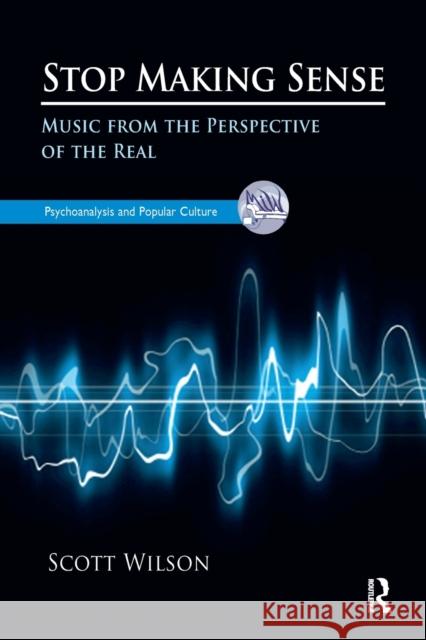Stop Making Sense: Music from the Perspective of the Real » książka
Stop Making Sense: Music from the Perspective of the Real
ISBN-13: 9781782201984 / Angielski / Miękka / 2015 / 272 str.
Stop Making Sense: Music from the Perspective of the Real
ISBN-13: 9781782201984 / Angielski / Miękka / 2015 / 272 str.
(netto: 171,49 VAT: 5%)
Najniższa cena z 30 dni: 169,28
ok. 16-18 dni roboczych.
Darmowa dostawa!
Stop Making Sense offers an original and compelling theory of music -from the perspective of the real- as this term is understood according to the Lacanian orientation in psychoanalysis. Located in a mediating position between the subject and the real, music is here regarded as a form of social bond analogous to but quite distinct from the language of speech, operating -outside sense-. Music, like mathematics, is often regarded as a -language- of the real in two senses: as a particulate system of essentially meaningless notes and tones that nevertheless provide regularities offering structure and orientation; and as the -language of love-, a means of mediating jouissance or the agonies and ecstasies that result from the -real- of sexual difference.
The first part of the book explains its theoretical and methodological underpinnings that are based in a reading of subjects and symptoms such as amusia. The second and third parts focus on contemporary examples that look at how music has become both a powerful locus of discontent and also a form of orientation in an age of generalized psychosis imposed by neoliberalism as a form of governance. This has been accelerated by the regime of digital telecommunications since the early 1990s, which has seen the emergence of various new symptoms related to the autistic jouissance to which we have been confined with our gadgets and networked computers. Specific examples and cases discussed include: Freud's melophobia or fear of music; Che Guevara's revolutionary a-rhythmia; John F. Nash's obsession with 'Bach's Little Fugue'; Talking Heads and Asperger's Syndrome/Autism; Yoko Ono and the sense of -lack- in the Beatles; the role of 'Imagine' in the murder of John Lennon; Brian Eno and the digital auto-generation of Freud's -oceanic feeling-; Aphex Twin and the brain-dance of the hikikomori; and the utopian promise of Merzbow.











